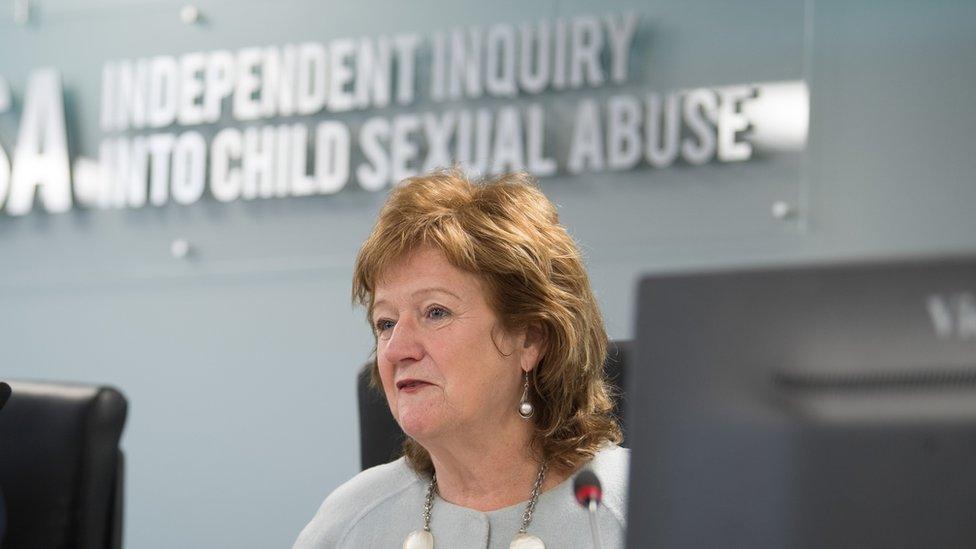Ben Emmerson QC resigns as child abuse inquiry lawyer
- Published
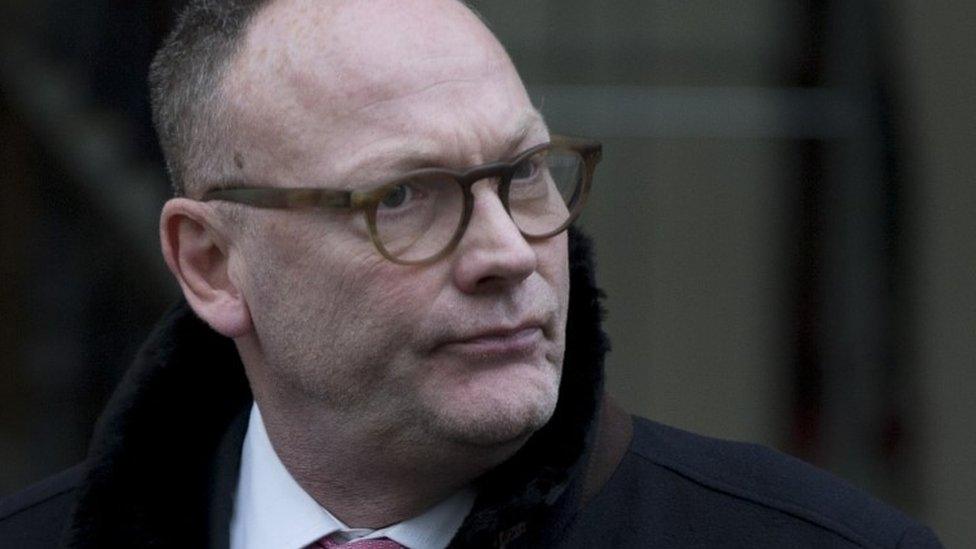
Ben Emmerson QC, the most senior lawyer working for the independent inquiry into historical child sexual abuse in England and Wales, has resigned.
In his resignation letter, Mr Emmerson said he was no longer the "right person" for the role, but denied he had stepped down due to a difference of opinion with chair Prof Alexis Jay.
The Shirley Oaks Survivors Association said it was "devastated" by the news.
Prime Minister Theresa May has said she still has confidence in the inquiry.
Mr Emmerson had been suspended on Wednesday due to "concerns about his leadership".
His resignation on Thursday evening came hours after it emerged that his colleague Elizabeth Prochaska - the inquiry's second most senior lawyer - had stepped down on 15 September.
'Truly upset'
It had been suggested her departure was unconnected to Mr Emmerson's resignation. However, BBC Newsnight understands there were "serious problems" in the working relationship between Mrs Prochaska and Mr Emmerson.
The two resignations are the latest blows to an inquiry that has already been beset by problems - Prof Jay is the fourth person to be appointed to lead the inquiry after three chairwomen stood down.
The inquiry was set up to examine whether public bodies, including the police, had failed in their duty to protect children from sexual abuse, and to examine claims of abuse involving "well-known people".
Abuse survivor Ian McFayden tweeted, external: "Honestly this is truly a sad day for victims & survivors of abuse, when we lose one of the worlds leading civil rights lawyers @BenEmmerson1."
Mr Fayden, who was abused at school, also said, external: "Truly upset tonight! Not for myself, but for those survivors who thought we might actually have an inquiry worth engaging with!"
A spokesman for the Shirley Oaks Survivors Association, a group representing 600 people who allege they were abused in south London children's homes, said: "We are devastated for all those victims who were hoping to finally get justice, but I cannot say it is surprising."
He said the group always harboured concerns about the inquiry's "everlasting remit".
Barrister Michael Mansfield told BBC Radio 4's Today programme the inquiry had been "chaotic from the very beginning and appalling appointments had been made" without consulting survivors.
He also agreed that the inquiry needed to be split up into " very obvious parts".
Answering calls for Mr Mansfield to replace Mr Emmerson, he added: "I am very willing to consider it."

Analysis
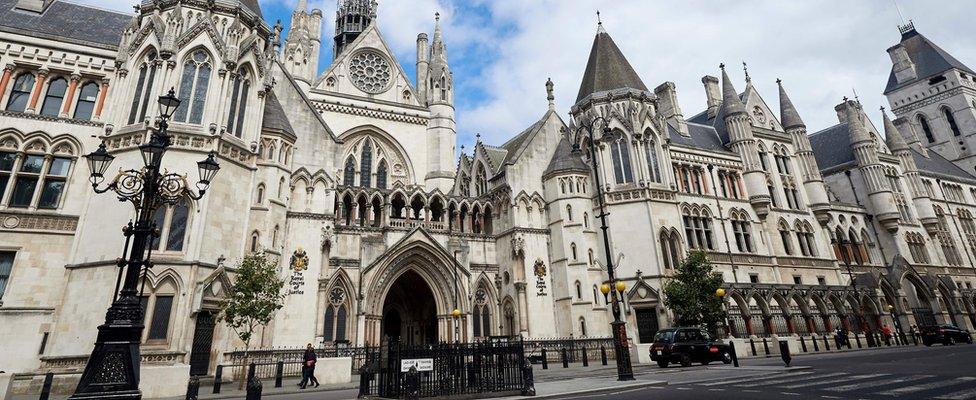
Preliminary hearings in the inquiry began in March at the Royal Courts of Justice
By Tom Symonds, BBC home affairs correspondent
Morale among victims of child abuse who have been waiting for this inquiry to make progress is at rock bottom. It is not hard to see why.
The inquiry now has no counsel, the senior lawyer who will question witnesses.
Ben Emmerson's replacement must be found and prepared for hearings, which are due to start early next year.
Another challenge is the need to reshape the inquiry's working methods to make its huge task more achievable.
Several of the inquiry's critics are considering court challenges to aspects of its work.
Meanwhile, newspaper articles and blogs question the existence of the inquiry on a daily basis.
But the prime minister - who started this in the first place - insists it has to go ahead, its wide-ranging remit intact, because children were failed in the past. And lessons must be learnt.

'Different leadership'
In his resignation letter, external to Prof Jay, Mr Emmerson said he was "sad" to leave the inquiry after two years.
However, Mr Emmerson said he had had doubts about whether he was the right person for the inquiry when he was reappointed to the role by Prof Jay earlier this month.
He wrote: "Since then, it has become clear to me that I am not the person to take this review forward on your behalf.
"It is now time for someone else to take the helm with a different leadership of the counsel team.
"There is no truth in suggestions that I have resigned due to a difference of opinion with you about the next steps for the inquiry."

Abuse inquiry: How we got here
7 July 2014 - The government announces an independent inquiry into the way public bodies investigated and handled child sex abuse claims. Baroness Butler-Sloss is chosen as chair
14 July - Baroness Butler-Sloss stands down, saying she is "not the right person" for the job after questions are raised about her late brother, Sir Michael Havers, being attorney general in the 1980s
31 October - Lord Mayor of London Fiona Woolf steps down amid calls for her resignation after she admits having five dinners with Lord Brittan from 2008-12
4 August 2016 - New Zealand high court judge Dame Lowell Goddard writes to Home Secretary Amber Rudd to resign from her post
Professor Alexis Jay, who led the Rotherham abuse inquiry, appointed new chairwoman

'Dysfunctional inquiry'
Mr Emmerson, who represented the widow of Alexander Litvinenko at the inquiry into the Russian dissident's death in London from radiation poisoning, is a deputy High Court judge.
He is also a visiting professor of human rights law at Oxford University and a leading international lawyer.
Prof Jay said Mr Emmerson would "continue to be available to the inquiry whilst his replacement is recruited and brought up to speed".
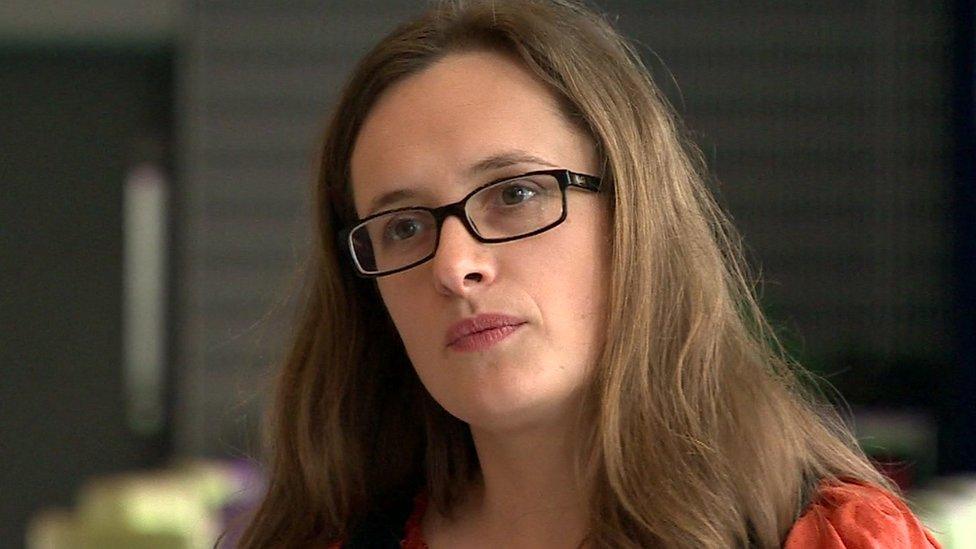
Elizabeth Prochaska was the inquiry's second most senior lawyer before she stepped down
The prime minister said the "really important" hearings would still go ahead as planned. Preliminary hearings began at the Royal Courts of Justice in London in March.
Speaking during a visit to Wiltshire on Thursday, Mrs May said the inquiry's original terms of reference "were the right ones".
"We should always remember why it is that the inquiry was set up in the first place and when those terms of reference were set they were agreed with victims and survivors and it is victims and survivors who are at the heart of this inquiry."
However, Labour MP Chuka Umunna, who is standing to become chairman of the Commons Home Affairs Select Committee, said it was "frankly not credible" to claim the inquiry was functioning properly.
"This is a dysfunctional inquiry and we need urgent reassurance by the chair that she is getting a grip of the situation," he added.
In a statement following Ms Prochaska's departure, the inquiry described the recent events as "unsettling, particularly for victims and survivors of child sexual abuse and all those who are engaged with the inquiry's work".
The statement added: "It has been said that the inquiry is in crisis. This is simply not the case, and the chair and panel are united in their determination to see this important work through to a conclusion."

Strands of the inquiry
The inquiry has launched 13 investigations into a broad range of institutions. They are named as follows:

- Published29 September 2016
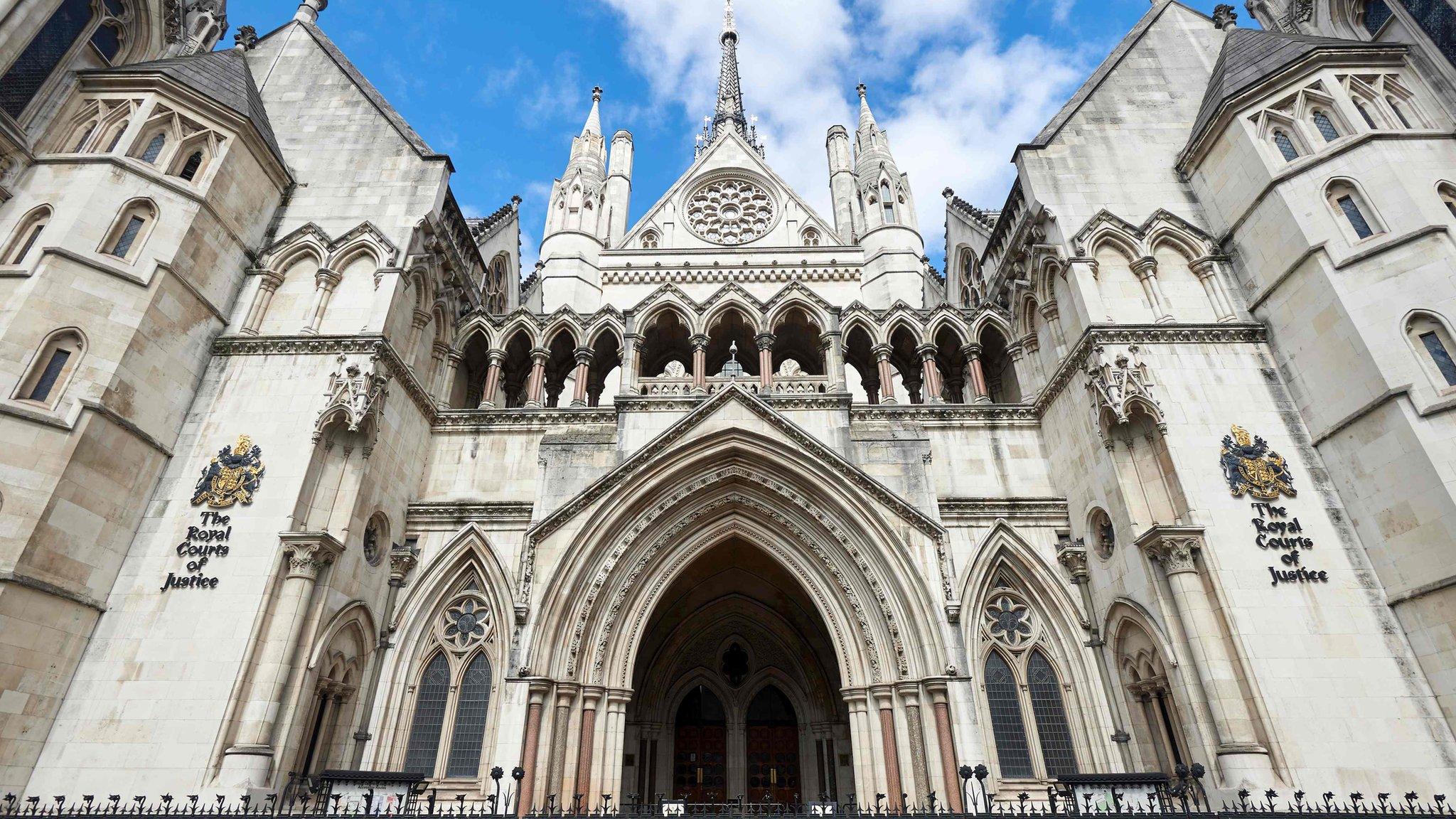
- Published29 September 2016
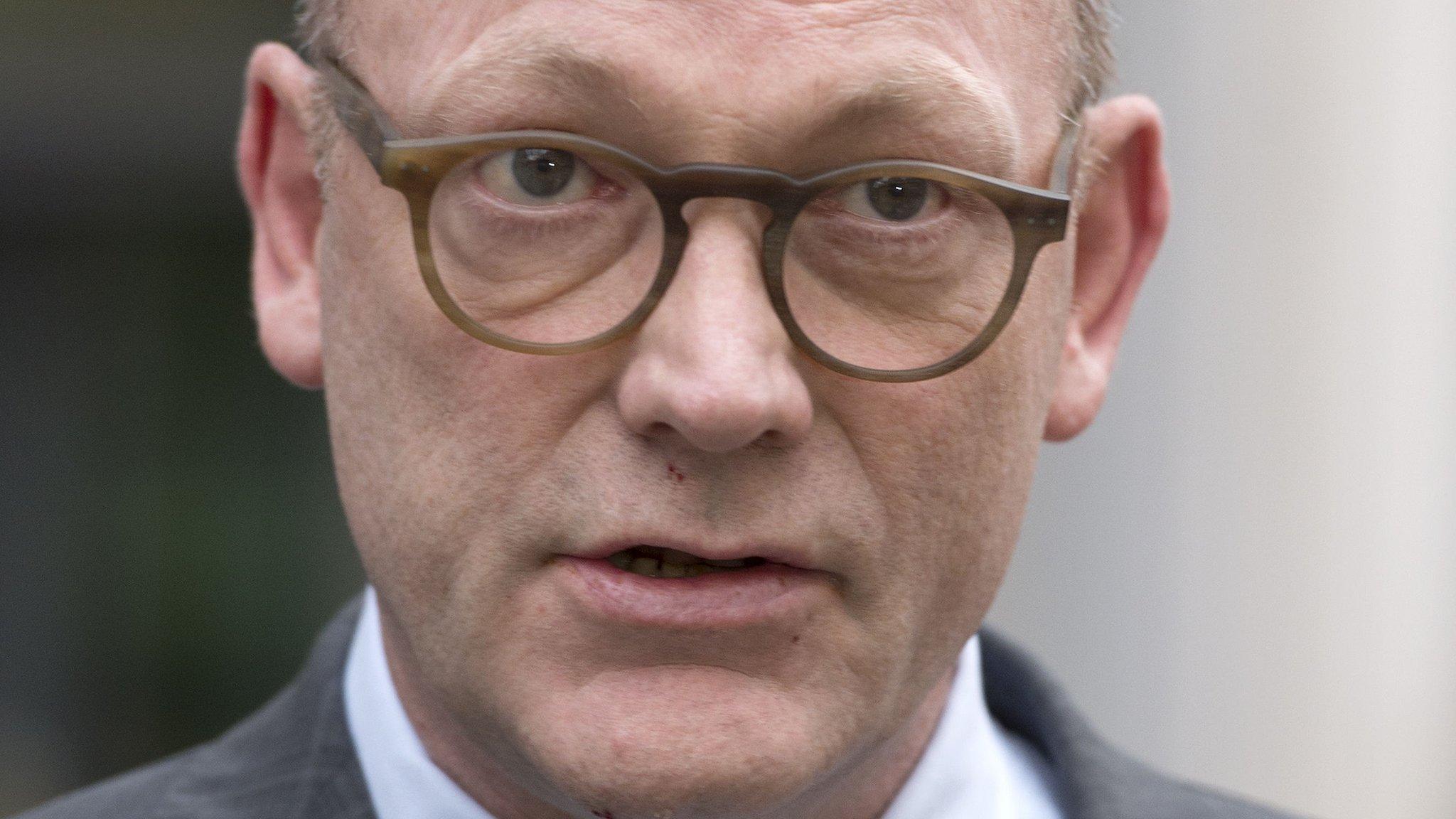
- Published11 August 2016
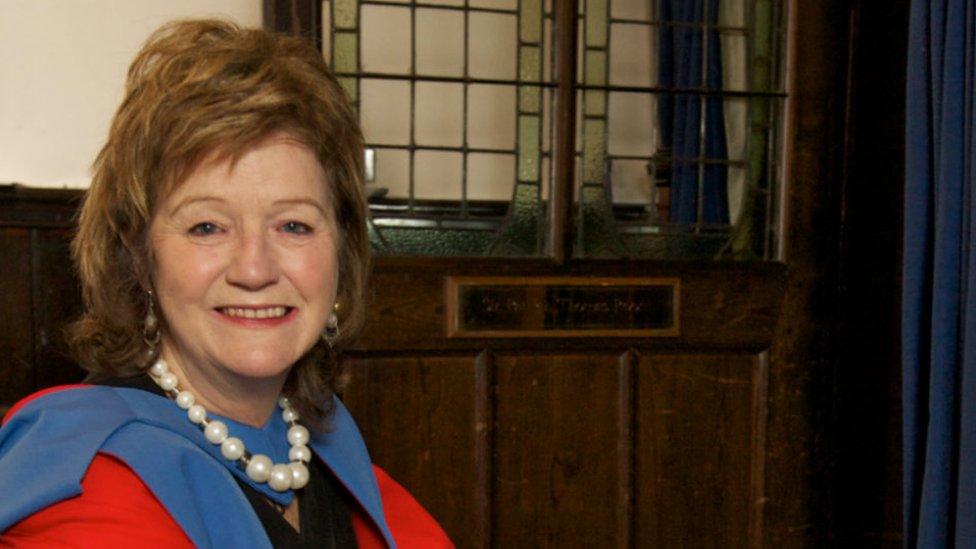
- Published6 October 2020
